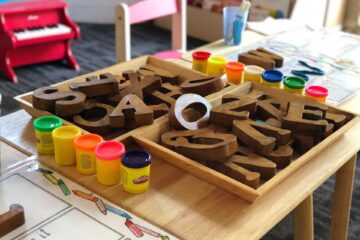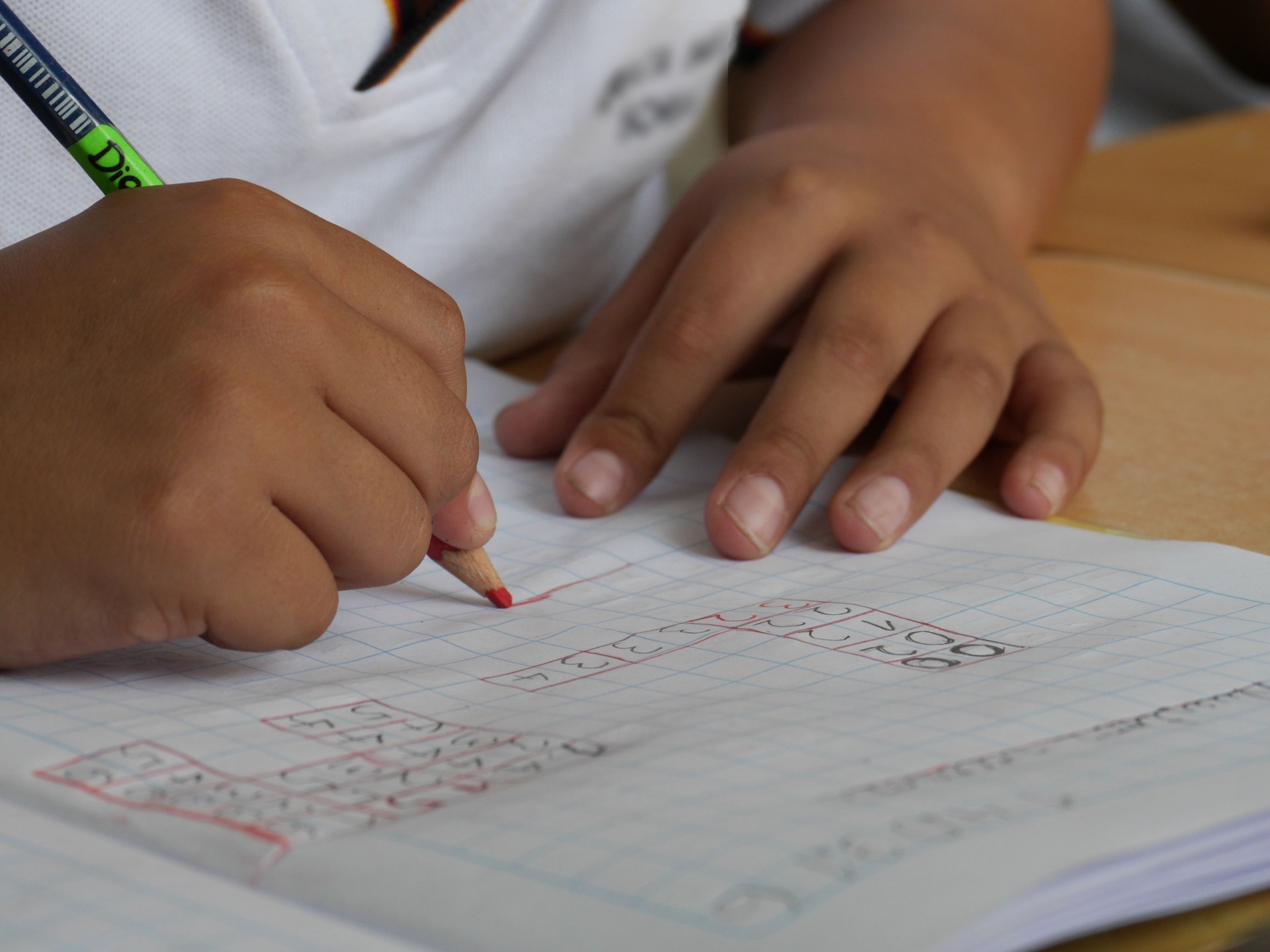You’d agree with me that toddlers are a talkative bunch – from singing your name while running around the house to repeating every word they hear – they just can’t get enough of their newfound superpower.
It’s always a pleasant delight to watch your little one hit their talking milestone and babble through their first words, but when the babbling stage lingers beyond the norm or the words don’t flow well as they age, you might begin to worry or get concerned.
However, it’s important to remember that some children do not conform to these general milestones and may experience slight delays in speech. Another possibility is that they might have a learning disorder known as dyslexia.
What does dyslexia mean? It simply means that a child with dyslexia will find it more challenging learning and getting the hang of their ABCs.
What is dyslexia?
Dyslexia is a neurodevelopmental disorder that is characterized by difficulties in learning how to read aloud and spell.
It is one of the most common reading disabilities. It can be diagnosed in children or adults later in life, and it’s a lifelong condition.
Dyslexia does not affect a child’s intelligence or physique, only their ability to connect letters and form words with them, both in speech and writing because their brain finds it difficult to recognize sounds made in speech. That is, dyslexia has nothing to do with a child’s level of intelligence.
What causes dyslexia in children?
Dyslexia does not stem from laziness, playfulness, or from parents overpampering their child as some people claim.
There are so many hypotheses surrounding the cause of dyslexia, but only a few are scientifically true – one of such is that dyslexia is a hereditary condition. This means that it runs in the family, the child has this condition because someone in the family had/has it too.
Another theory that most scientists find true is that the cerebellum is partly responsible for dyslexia. The cerebellum is the part of the brain that is responsible for coordinating balance, attention, and speech. If this part of the child’s brain doesn’t function as it should, dyslexia could be one of the likely consequences.
Also, dyslexia could be caused by a delay in the child’s brain development, if the child was born preterm. When babies are born preterm, the normal order of brain development that takes place before birth could be disrupted leading to some health conditions.
Related: Poor cognitive function and how gestational age influence it?
What does dyslexia look like?
Some children show signs of dyslexia early in life while others do so much later. In either case, knowing the correct flags to look out for will help you identify the condition early, because as the adage goes, ‘early is always better.’
Here are a few signs that’ll help paint a picture of what dyslexia means and what it looks like:
- Lingering on the babbling stage
- Delay in talking
- Learning new words slowly
- Pronouncing simple words wrongly
- Spelling words backwards
- Inability to form simple sentences at age 3
- Difficulty in remembering names of people and common things around them
- Confused by letters and symbols
- Reading and writing very slowly
- Struggles while trying to form words
The signs could be different for each child depending on the type of dyslexia. Also, some of these signs do not exactly mean that your child is dyslexic.
There’s also the possibility of your child experiencing learning delays which they might eventually overcome with proper guidance as they grow.
Help: Still don’t get what dyslexia means? Here’s a website page that shows you exactly how reading with dyslexia looks like!
How is dyslexia diagnosed?
Dyslexia is not a disease so it cannot be diagnosed through laboratory tests, rather a licensed educational psychologist, neurologist, paediatrician, or any medical doctor can tell if your child is dyslexic after subjecting the child to a few oral and written tests.
Doctors also use information about the child’s medical and family history to trace any history or root cause of learning disability.
Psychological tests might also be employed to rule out the possibility of the child being traumatized.
All these factors including hearing, vision, and neurological tests are always put into consideration to accurately determine if a child is dyslexic or not.
How does a child with dyslexia behave?
Other than the aforementioned signs, you can also tell if your child is dyslexic through their behaviour.
- They don’t speak too often and when they do, it’s a single word reply
- Your child might develop an aversion to school. If your child throws tantrums every school day, then you should pay more attention to that child to discover the reason behind such behaviour
- Most kids with dyslexia do not enjoy being at school, this is not because they do not like learning, but because they feel uncomfortable in such an environment
- They try to avoid crowded places and spend more time in seclusion
- They do not have a lot of friends
These behaviours are mostly common among older kids who have been bullied because of their condition. This is the reason why it is necessary to have a professional do the diagnosis.
How to help your child cope with dyslexia
Like every other learning difficulty, dyslexia requires an environment of immense love and support. This would help them see beyond their challenges, stay positive, and focus on improving their learning.
How can you go about this?
- Applaud their little successes. This would encourage them to put more effort into their work.
- Encourage them not to give up when they fail. Help your child understand that failure is a part of every learning process and they need to learn from it rather than sulking over it.
- Protect them from emotional abuse in the general society and also in the school.
- Do not compare them to other children.
- Be patient with them and encourage them to be patient with themselves, too.
- Help them develop their other senses and tap into their inert potentials. Children with dyslexia are not intellectually deficient, they have well-functioning brains and they are capable of achieving great success in life.
- Get your child a therapist. Getting your child a therapist is a good way to help them manage the anger, frustration, anxiety or depression that they might face.
What are the different types of dyslexia?
There are different types, however, they can all be grouped into 2 categories: developmental and acquired dyslexia.
1. Developmental dyslexia
This is a type of dyslexia that does not have any origin. It is a hereditary defect that affects a child’s ability to read without influencing their oral and non-verbal reasoning.
Oftentimes, developmental dyslexia is used as a substitute name for dyslexia.
2. Acquired dyslexia
Acquired dyslexia stems from neurological conditions like stroke or traumatic brain injuries. It is a result of damage to your child’s brain, which causes speech, comprehension, or visual impairment.
A subtype in this category known as neglect dyslexia could result in a child being unable to read the first few words in a sentence and another is known as direct dyslexia where a child can read words out aloud but without understanding.
Deep dyslexia is also a subtype of acquired dyslexia. In this case, a child finds it easier to read tangible words like baby, mummy, but experiences difficulty in reading abstract or imaginary words like love, success, or good.
Can dyslexia be cured?
There is currently no known cure for dyslexia, however, it can be managed. Though without a cure, dyslexia, if effectively managed, will yield visible improvements, especially when detected early.
Children with dyslexia need psychotherapeutic and learning assistance to help improve their spoken and written language.
1. Psychotherapy
Through proper psychological evaluations by trained experts, specific strategies and teaching techniques that target their area of need will be developed.
2. Learning assistance
Kids with dyslexia require well-structured programs like the structured literacy approach or the Orton-Gillingham method, which both focus on helping the child find a connection between letters and their sounds. These programs can help them overcome their challenges.
Their peculiar condition qualifies them for special reading and spelling tutors who are patient and empathetic enough to guide them through their learning process.
These learning programs usually focus on helping the child learn sounds, letters, words, make sentences, and read with understanding.
As a parent, you can also help your toddler learn by:
- Speaking directly to them
- Repeating their words after them
- Answering their questions
- Chatting with them
- Reading them stories
- Asking questions as you read a book together
Famous dyslexics
As stated earlier, dyslexia doesn’t affect your child’s intelligence. It does not mean that they have a low IQ. There are highly smart and renowned people who are dyslexic. This includes the likes of:
- Thomas Edison, dropped out of school at 12 because his disability made it difficult for him to cope. Today, he is known as America’s greatest inventor.
- Nelson Rockefeller, a former vice president of the United States of America was dyslexic.
- Albert Einstein, who couldn’t read until the age of nine was placed in a special school by his parents and he turned out to be one of the world’s greatest physicists.
- Carol Greider, who won the 2009 Nobel prize in medicine for discovering telomerase, an enzyme that has the potential to fight cancer and age-related diseases is dyslexic.
These famous people battled with their difficulty, overcame it and inscribed their names in the coffers of history.
The Gist
Dyslexia is a learning disability with no identified root cause, and with only risk factors such as a family history of dyslexia. It cannot be cured, but it can be managed through constant and conscious learning support.
Having dyslexia does not mean that a child has a low or high IQ. It has absolutely nothing to do with a child’s intelligence quotient.
Finally, not having a chatty toddler does not mean that they are dyslexic. It could be a speech delay that will resolve on its own with time and practice. Because diagnosing dyslexia isn’t easy, it’s necessary to always seek expert opinion early if your child is experiencing any form of speech delay.


